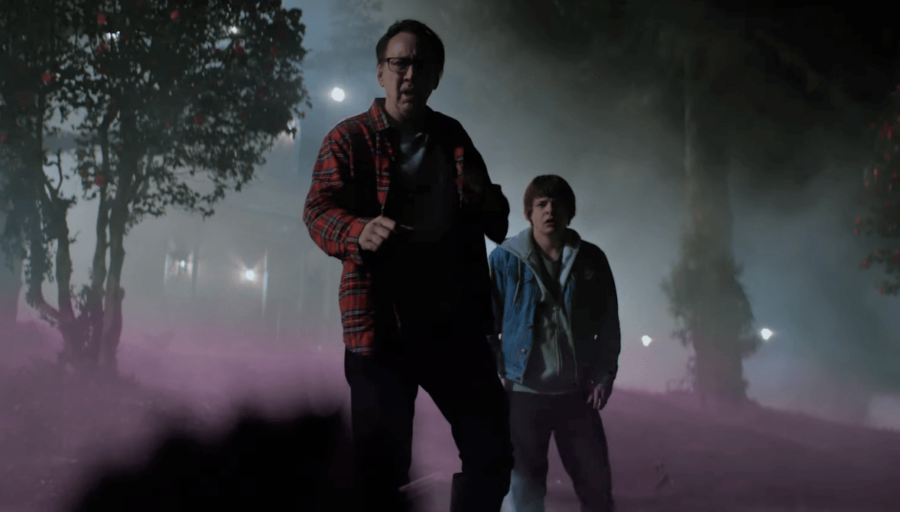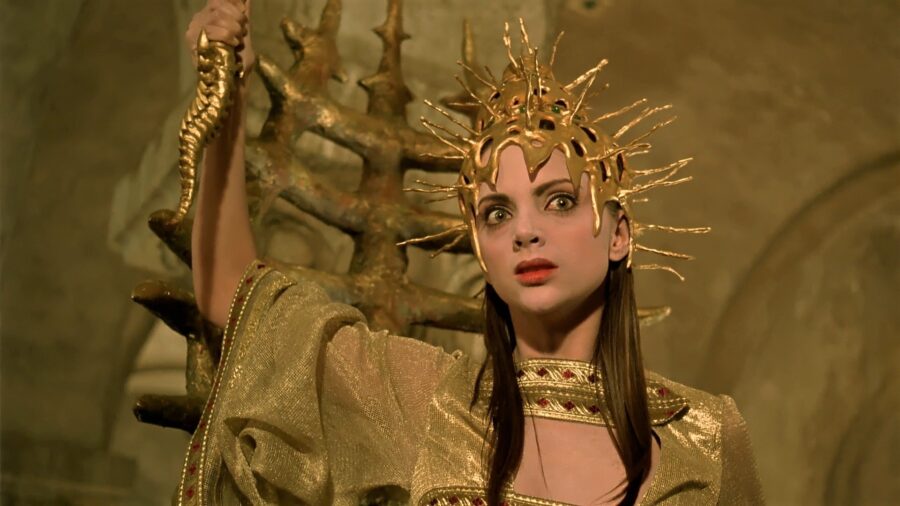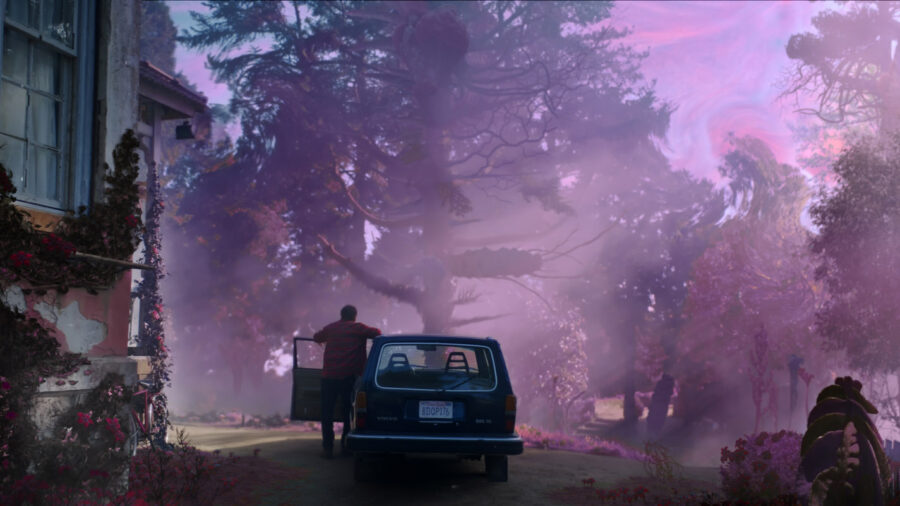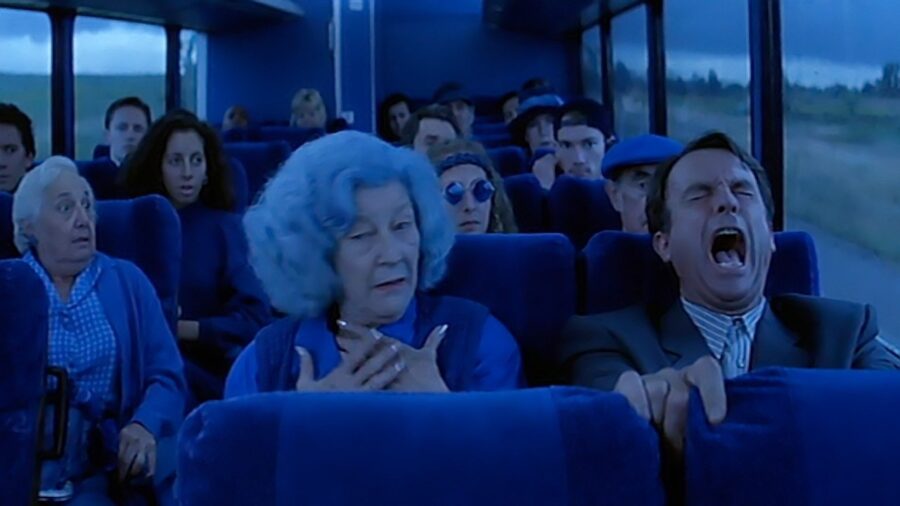Why H.P. Lovecraft Is Hard For Hollywood To Get Right

Horror has proven to be one of Hollywood’s most profitable genres, and every year, a new low-budget film comes out and dominates the box office for weeks, if not months, at a time. Famous horror authors, including Stephen King and Dean Koontz, have had their work turned into big-budget films, but one of the most influential authors of all time, who popularized and established an entire sub-genre of literature, is nowhere to be found.
A major, big-budget H.P. Lovecraft production has yet to happen, even though Cthulhu is one of pop culture’s most popular monsters, so what’s the problem?
H.P. Lovecraft laid the groundwork for cosmic horror, created Cthulhu, and established tropes used today in every medium, yet Hollywood won’t touch his stories.
As anyone who has read H.P. Lovecraft’s short stories will tell you, they can be hard to read. With a verbose and antiquated style, even for his time period, the author has never met a sentence he can’t turn into a paragraph. The concept of “show, don’t tell” never worked its way to the printed page.
Another problem with the works of H.P. Lovecraft is that, for the most part, the protagonist is a faceless, nameless void of general character traits. In Dagon, for example, all we learn of the mariner is that he was a sailor, and he’s now addicted to morphine. Even his recurring characters, such as Randolph Carter, are given brief sketches of a personality; in Carter’s case, he’s Lovecraft’s stand-in.

This technique works in the stories because they fit the overall theme of H.P. Lovecraft’s work, “humanity is insignificant.” The protagonists don’t really matter, and it’s all about the otherworldly horror. Lack of description lets the reader’s mind fill in the blanks, and the writing is so evocative it’s hard to stop the human brain from trying to piece it all together, but that doesn’t translate to a visual medium.
That hasn’t stopped studios and independent filmmakers from trying to bring the works of H.P. Lovecraft to life. Back in the 1980s, there was a rush, with Re-animator, starring Jeffrey Combs, as a shock low-budget hit that brought the short story Herbert West – Reanimator to the screen. Updated for modern times, in this case, 1985, the film has become a cult classic, noted for something Lovecraft often lacked: humor.
No major Hollywood studio has attempted to take one of H.P. Lovecraft’s most action-packed stories to the big screen.
The success of Re-animator led to Bride of Re-animator in 1990 and Beyond Re-animator in 2003, while the film’s director, Stuart Gordon, also adapted From Beyond into a film in 1986. Though they were all well-received by critics, small-scale horror films have remained the domain of H.P. Lovecraft adaptations ever since.
Amazingly, The Dunwich Horror has been adapted multiple times, once in 1970 featuring Dean Stockwell and again in 2009 for Syfy with Jeffrey Combs and Stockwell. What makes it hard to adapt is that the cosmic horror terrorizing the Massachusetts countryside is invisible. Despite the strange premise, it’s one of the most referenced H.P. Lovecraft stories, including in the Fallout video game series and the classic soap opera Dark Shadows.
No major Hollywood studio has attempted to take one of H.P. Lovecraft’s most action-packed stories to the big screen. None of the smaller adaptations has had mainstream success, but with a large budget and special effects expertise behind it, the story could be a hit.

The largest adaptation to date is also the most recent, in 2019, Color Out Of Space, starring Nicolas Cage and Elijah Wood, was faithful to the H.P. Lovecraft story of the same name. Praised by fans, the movie was made with a budget of only $6 million, and while it pulled in only $1 million at the box office, it’s become a cult hit on streaming.
H.P. Lovecraft’s Cthulhu mythos has the ingredients to become a successful franchise; after all, interconnected universes have never been hotter. If Marvel can make Dr. Strange work on the big screen, audiences can handle the eldritch abominations of The Mountains of Madness. In fact, for the longest time, Guillermo Del Toro was trying to make it happen, but a lack of studio interest kept it from becoming a reality.
Thankfully, the award-winning director took to Instagram and shared a brief clip from a CGI test.
Any film that brings H.P. Lovecraft’s Cthulhu mythos to life will have to heavily use CGI. Between that and trying to create a 2-hour story out of a short story with little description, it’s understandable why major studios are scared of taking a chance on Lovecraft. Well, all of those reasons and the small matter of having to take out the author’s outdated views on people who weren’t from Rhode Island and didn’t look like him.
Guillermo Del Toro’s Mountains of Madness, which never found a studio to back the production, is the closest we’ve come to a big-budget adaptation of H.P. Lovecraft’s seminal story.
The series Lovecraft Country, starring Jonathan Majors and based on the book by Matt Ruff, successfully combined Lovecraft’s racist undertones (overtones?) with cosmic horror. Hollywood can make works that are adjacent to H.P. Lovecraft, from In The Mouth of Madness to The Thing (both directed by John Carpenter), but straight adaptations remain beyond the capabilities of Hollywood.

Evil Dead popularized the Necronomicon, a fictional book created by a mad prophet, that has since become part of pop culture whenever an evil source of power is needed. Even Marvel, with the Darkhold (which rose to prominence decades after H.P. Lovecraft was writing), takes inspiration from his work.
Underwater, starring Kristin Stewart, wasn’t marketed as having anything to do with H.P. Lovecraft, yet the film fits seamlessly into the Cthulhu mythos. No spoilers here; watch it if you want to see the wild turn it takes, but it’s another example of a film that takes the themes, style, and tone of Lovecraft while applying them to a new, modern story.
We may never get The Music of Eric Zahn or The Call of Cthulhu, but we’ll get Annihilation and Event Horizon. Ultimately, that’s going to be the fate of H.P. Lovecraft’s work: reimagined, reworked, and used as a base for new writers, stars, and directors to add their own stories to the Cthulhu mythos.












